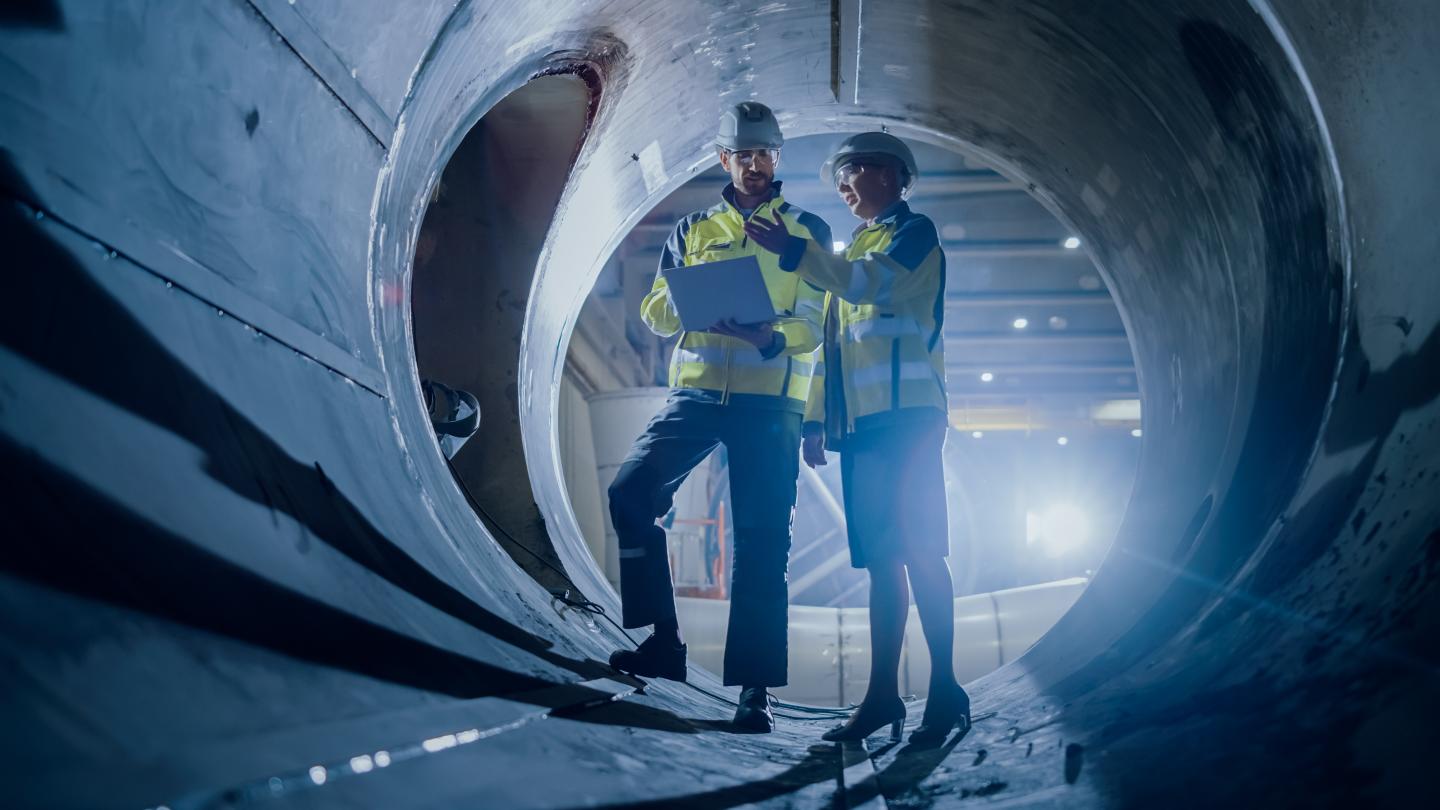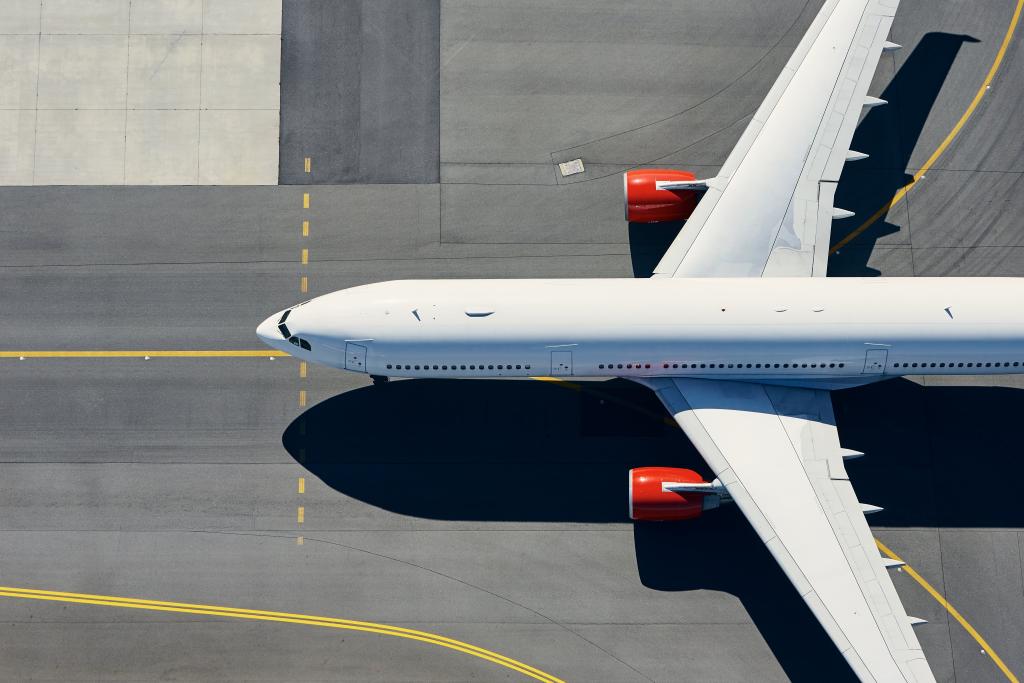INSIGHT
Will sustainable aviation fuel mark the start of ‘guilt-free’ flights for business travellers?

Sustainability is becoming increasingly important to travellers, and many are willing to switch airlines or use alternative modes of transportation if there is a more environmentally-friendly option available. This according to an OAG report which found that 56% of all travellers (rising to 68% among Millennials) and 50% of business travellers would consider switching to a greener alternative.
"This highlights the pressure the airline industry is under to find sustainable fuel sources to respond to market change, and that it recognises the need to change," says Justin Penny, Head of Aviation Europe, Flight Centre Travel Group.
According to the International Civil Aviation Organization (ICAO), sustainable aviation fuels (SAFs) remain the best option to reduce carbon emissions – and the quickest way to achieve the aviation industry's goal of net zero by 2050.
What is sustainable aviation fuel (SAF)?
SAF is a much cleaner burning fuel than fossil jet fuels and reduces emissions of harmful greenhouse gases by 75%. It also reduces other harmful emissions like particulates and sulphur by 90% and 100%, respectively. It is made from sustainable resources that can be blended with any fossil jet fuel to reduce emissions without requiring modifications to the aircraft or infrastructure.
SAF has powered over 450,000 flights worldwide, and more than 45 airlines now have experience with SAF, reports the International Air Transport Association (IATA). However SAF is not yet widely available at scale and accounts for less than 0.1% of the aviation fuel market.
To meet the growing global demand for sustainable fuel, IATA has called on governments to introduce SAF incentives. Recent policy announcements support this premise, with several countries announcing tax incentives and updates regarding the use of SAF:
- In July 2022, the UK government announced a sustainable aviation fuel (SAF) mandate to ensure that at least 10% of aviation fuel is SAF by 2030 and plans to build five commercial-scale SAF facilities within the next three years.
- The Australian government announced plans to develop a world-leading aviation sector that is carbon neutral by 2050, and a BP Kwinana refinery is being converted to produce SAF from feedstocks.
- In the USA, the Inflation Reduction Act was signed into law in August, providing new tax credits for SAF.
- The Civil Aviation Authority of Singapore (CAAS), Singapore Airlines (SIA) and Temasek announced a programme that allows companies to purchase SAF credits to offset carbon emissions associated with air travel.

The challenge of fuelling demand for SAF
As pressure on airlines to invest in SAF increases, there is a risk that the higher cost of SAF compared to a regular jet fuel will be passed on to passengers in the form of higher airfares, says Justin.
To combat this, IATA's goal is to facilitate collaboration and promote partnerships between industry and policy stakeholders and provide policy support to create the necessary framework for SAF commercialisation. They believe this will help remove barriers to achieving a competitive SAF market.
The issue is that SAF is still significantly more expensive than jet fuel. However, as consumer preferences change, airlines are taking SAF more seriously as a way to meet their emissions targets and comply with regulations for specific destinations. SAS, Lufthansa, Qantas, Alaska, and United are already using SAF for commercial flights. American Airlines and Qatar Airways have signed on to an ambition statement to achieve net-zero emissions.
These efforts are driving demand, and as a result Shell announced in February that it has become the first supplier of SAF to airline customers in Singapore. It’s committed to working towards producing around 2 million tonnes of SAF a year by 2025 globally.
The role of TMCs in the SAF equation
“TMCs also have a role to play,” says Justin. “And not only when it comes to driving the demand for SAF, there is also an opportunity to help their customers meet their internal sustainability goals.”
One positive step is the increasing adoption of Corporate Sustainable Aviation Fuel programmes, which allow companies with a corporate contract to ensure that a portion of their business travel is conducted using sustainable fuel, essentially by purchasing SAF on their behalf.
Justin says this isn't the ultimate answer. "There are only a limited number of airlines selling SAF, and due to production issues, minimal quantities of SAF are available worldwide. As a company, if you buy SAF in large quantities from an airline, it is not guaranteed that your travellers will fly on aircraft that use SAF. The SAF purchased only contributes to the airline's overall fuel consumption. For many companies, that is not acceptable," he says.
Justin says FCM is looking for solutions by working with airlines to encourage discussion of airline sustainability programmes and subsequent adoption of those programmes, including issues such as SAF.
"It's extremely complex because there are currently no industry standards. A lot of eyes are on IATA, which will hopefully help with this. FCM has a relationship with IATA that includes working on a SAF programme. Ultimately, we can certainly help facilitate discussions between airlines and businesses, and in conjunction with technology and data, help everyone achieve their specific sustainability goals," Justin says.
And here technology is really coming into its own. Via our Platform and browser extension technology, FCM is developing features that provide sustainability information for their travellers, including search results that provide hotel sustainability certifications; carbon emission information; carbon calculators; sustainability messaging and the promotion of on-policy bookings; and information around carbon offset programmes.
Commitments like these are attractive to businesses looking for progressive travel partners. For example, Shell recently announced that it has selected FCM as its global travel provider to manage travel needs for all of its business units.
"As we look to the future, it is clear that the airline industry must take action to ensure its long-term sustainability. We can play a key role in this process by connecting airlines and their customers with each other's sustainability efforts. In this way, we can help reduce everyone's environmental impact," says Justin.